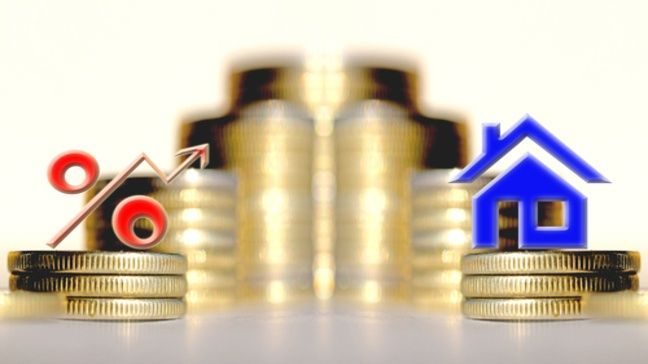With mortgage rates so low right now, it seems everybody is talking about what a smoking hot mortgage rate they got on their new house. But mortgage rates are tricky. It’s easy to look at a 3.75 percent APR mortgage rate and say “holy cow” when, 25 years ago, the national average interest rate for a 30-year fixed mortgage was 10.58 percent according to HSH.com’s list of historical mortgage rates.
What’s Ahead:
But what do these lower mortgage rates mean for you? And what should you know before you start comparing them?
Now that we’re looking in the 3 percent range, we’re seeing even more competition to get the lowest interest rates while paying the fewest possible points. (Mortgage points are pre-paid interest that reduce your interest rate. For example, one point on a $100,000 mortgage would be $1,000 that you pay at the loan closing.)
Here’s the bottom line. Even a fraction of a percentage of difference in interest rate is enough to make someone choose one lender over another. But what does that really equate to? Money Under 30 has created a free Google Spreadsheet that you can use to run different loan scenarios. (This file is read-only; to edit, simply save a copy.)
Here’s an example:
- On a 30-year fixed-rate loan of $150,000 at 3.5 percent APR, your monthly payment is $674.
- Drop the rate to 3 percent, your payment drops to $632.
That saves you $41 a month on your monthly payment; not bad, but not earth-shattering. But over 30 years, you’ll save $14,817 in interest.
So half of a percentage can make a huge difference in how much money you spend or save over time. But if you have to buy down the interest rate by paying up front points (1 point is 1 percent of the loan amount), then it may or may not be worth it. For example, on a loan of $150,000 again, one point would be $1,500 that you would need to pay up front. The amount that a point reduces your interest rate depends but typically for every point you pay, you lower your interest rate by one quarter of a percent. So for this example, if you want to get from 3.5 to 3 percent, you’d need to pay $3,000.
Is paying mortgage points worth it?
It all depends on how long you plan to keep the loan.
In this example, if you divide $3,000 (the cost of paying two points) by the monthly savings of $41.16, you get just over 72. This is how many months it would take to break even before you start reaping the financial benefit of having paid those points. If you’re buying a family home to settle down in and you plan on staying more than six years, go for it! If you want to buy the house and then sell it again in two years, its better just to pay the higher interest rate. The same type of analysis is helpful in deciding whether or not to refinance your current mortgage. You can also talk to a mortgage broker to get help analyzing if refinancing is worth it for you.
Keep in mind that paying points isn’t the only way to save on interest. You can get a 15 year rather than a 30 year mortgage, or make extra payments early. For example, if you get an annual bonus every December you can put some of that into an extra mortgage payment once annually and if you do this every year, over time you will pay less money in interest.
One really helpful tool in analyzing the financials of a loan is a loan amortization schedule (also included in the loan payoff spreadsheet mentioned above). With an amortization schedule, you can see your loan balance after each payment, how much of each payment is going towards principal and how much is going towards interest and the cumulative interest you’ll pay over the years.
All that said, is now the time?
So if you’re trying to get the best interest rate on buying a home or a refinance, is now the time, or should you wait until the market changes? No one has a crystal ball, but those in the mortgage industry can cite trends.
“Interest rates are better than I can ever remember and look like they are going to stay that way for a while,” says Olen Crabtree, a mortgage broker in Chula Vista, Calif. “A lot of people are taking advantage of these low rates and refinancing…Coupled with more owner occupant type buyers and investors taking their money from the poor stock market and putting it into cash purchases of homes, we now have a shortage of market inventory in some [markets].”
What does all this mean to you? The takeaways are:
- Buying down the interest rate by paying points is sometimes worth it — if you’ll keep the loan for more than a few years.
- Small changes in your APR and the amount you borrow can add up to lots of interest in the long run. Use the loan payoff calculator to experiment with different scenarios and choose one that’s right for you.
Questions about how mortgage interest rates will affect you? Let us know in a comment.


